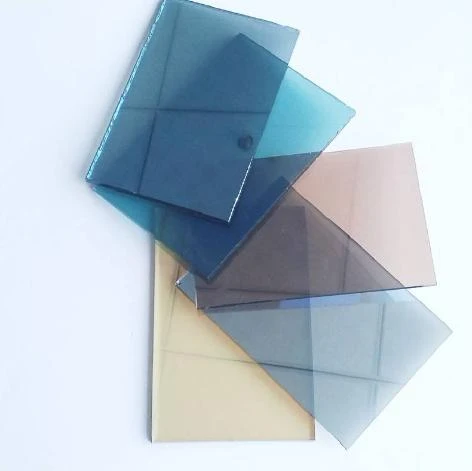The Flat Glass Process An Overview
Flat glass is a vital material used in a multitude of applications, ranging from architectural structures to automotive industries. The process of manufacturing flat glass involves several critical steps, each essential for creating a product that meets precise specifications in both quality and performance. This article delves into the intricacies of the flat glass production process, highlighting key techniques and technologies used in the industry.
1. Raw Materials Selection
The flat glass manufacturing process begins with the selection of raw materials. The primary ingredients include silica sand, soda ash, and limestone. Silica sand provides the fundamental composition of glass, while soda ash acts as a flux to lower the melting temperature. Limestone is added to enhance the durability and stability of the final product. In addition to these core materials, various additives can be introduced to impart specific properties, such as UV protection or coloration.
2. Melting
Once the raw materials are prepared, they are mixed together and fed into a furnace, where they undergo a melting process. The melting temperature typically exceeds 1,500°C (2,732°F), creating a molten glass that is homogeneous and devoid of bubbles or impurities. This phase is critical, as any inconsistencies can negatively impact the quality of the final product. Advanced melting technologies, such as electric or regenerative furnaces, have been developed to increase energy efficiency and reduce environmental impact.
3. Forming
After melting, the molten glass needs to be formed into flat sheets. The most commonly used technique is the float glass process, developed in the 1950s, which revolutionized glass manufacturing. In this method, the molten glass is poured onto a bath of molten tin. Since glass is less dense than tin, it floats on the surface, creating perfectly flat and smooth glass sheets. The high temperature of the tin bath helps to maintain the glass in a molten state during the forming process, allowing for the production of large, uniform panels.
flat glass process
4. Annealing
Once the forming process is completed, the glass sheets are gradually cooled in an annealing lehr. This controlled cooling is essential to relieve internal stresses that occur during the cooling of glass. The annealing process not only strengthens the glass but also prevents warping and ensures consistent thickness. This step is crucial for achieving the optical clarity and mechanical stability required for flat glass applications.
5. Surface Treatment
After cooling, the flat glass may undergo several surface treatments. These treatments can include polishing, coating, and tinting. Polishing enhances transparency, while various coatings can provide functionalities, such as anti-reflective properties or thermal insulation. Tinting, on the other hand, is used to control light transmission and improve aesthetics. Each of these processes contributes to meeting the specific needs of different markets, including building facades, vehicle windows, and solar panels.
6. Quality Control and Distribution
Finally, the finished flat glass undergoes rigorous quality control measures to ensure it meets industry standards. Tests for strength, optical properties, and imperfections are conducted before the glass is cut, packaged, and distributed to customers. The application of advanced testing technologies ensures that only the highest quality products reach the market, catering to the demands of architects, builders, and manufacturers.
In conclusion, the flat glass process is a complex interplay of science and technology, resulting in a versatile material that plays an essential role in modern society. As innovations continue to evolve, the glass industry adapts, further enhancing the functionality and sustainability of flat glass products for future generations.
 Afrikaans
Afrikaans  Albanian
Albanian  Amharic
Amharic  Arabic
Arabic  Armenian
Armenian  Azerbaijani
Azerbaijani  Basque
Basque  Belarusian
Belarusian  Bengali
Bengali  Bosnian
Bosnian  Bulgarian
Bulgarian  Catalan
Catalan  Cebuano
Cebuano  Corsican
Corsican  Croatian
Croatian  Czech
Czech  Danish
Danish  Dutch
Dutch  English
English  Esperanto
Esperanto  Estonian
Estonian  Finnish
Finnish  French
French  Frisian
Frisian  Galician
Galician  Georgian
Georgian  German
German  Greek
Greek  Gujarati
Gujarati  Haitian Creole
Haitian Creole  hausa
hausa  hawaiian
hawaiian  Hebrew
Hebrew  Hindi
Hindi  Miao
Miao  Hungarian
Hungarian  Icelandic
Icelandic  igbo
igbo  Indonesian
Indonesian  irish
irish  Italian
Italian  Japanese
Japanese  Javanese
Javanese  Kannada
Kannada  kazakh
kazakh  Khmer
Khmer  Rwandese
Rwandese  Korean
Korean  Kurdish
Kurdish  Kyrgyz
Kyrgyz  Lao
Lao  Latin
Latin  Latvian
Latvian  Lithuanian
Lithuanian  Luxembourgish
Luxembourgish  Macedonian
Macedonian  Malgashi
Malgashi  Malay
Malay  Malayalam
Malayalam  Maltese
Maltese  Maori
Maori  Marathi
Marathi  Mongolian
Mongolian  Myanmar
Myanmar  Nepali
Nepali  Norwegian
Norwegian  Norwegian
Norwegian  Occitan
Occitan  Pashto
Pashto  Persian
Persian  Polish
Polish  Portuguese
Portuguese  Punjabi
Punjabi  Romanian
Romanian  Russian
Russian  Samoan
Samoan  Scottish Gaelic
Scottish Gaelic  Serbian
Serbian  Sesotho
Sesotho  Shona
Shona  Sindhi
Sindhi  Sinhala
Sinhala  Slovak
Slovak  Slovenian
Slovenian  Somali
Somali  Spanish
Spanish  Sundanese
Sundanese  Swahili
Swahili  Swedish
Swedish  Tagalog
Tagalog  Tajik
Tajik  Tamil
Tamil  Tatar
Tatar  Telugu
Telugu  Thai
Thai  Turkish
Turkish  Turkmen
Turkmen  Ukrainian
Ukrainian  Urdu
Urdu  Uighur
Uighur  Uzbek
Uzbek  Vietnamese
Vietnamese  Welsh
Welsh  Bantu
Bantu  Yiddish
Yiddish  Yoruba
Yoruba  Zulu
Zulu 

